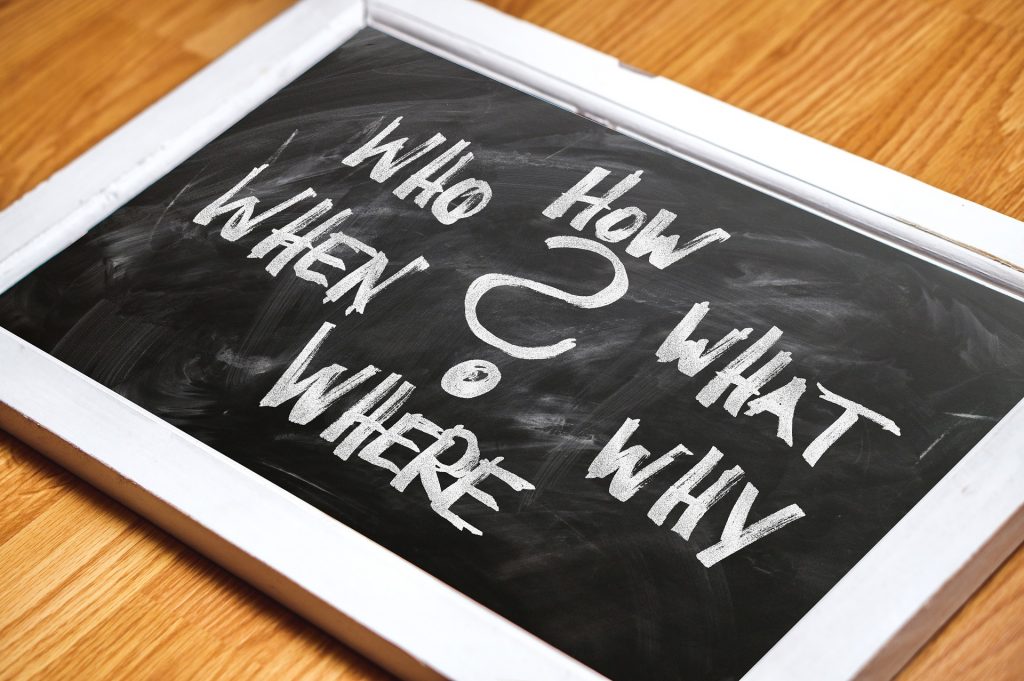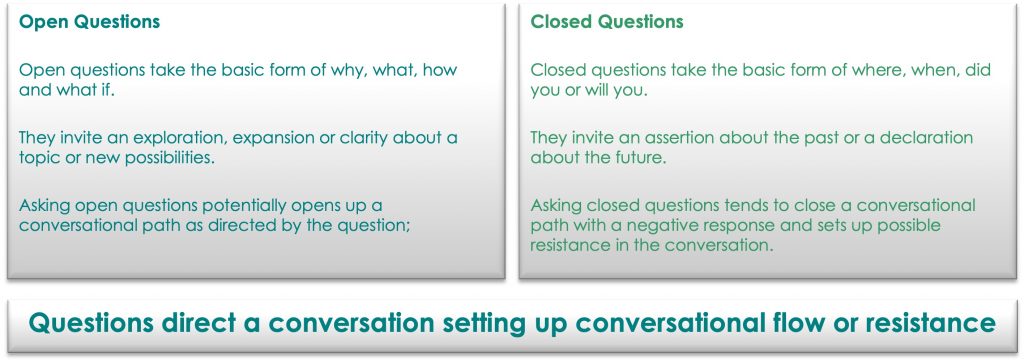
In our constant search for meaning, human beings ask a lot of questions. In terms of the linguistic acts, questions are defined as a type of request designed to get some more information and create new meaning for us.
Questions generally come in two forms – open and closed. When we ask these two types of questions will impact the flow and direction of a conversation in different ways. Regardless of the sort of question asked, the questioner directs the conversation in certain direction, assuming the others are prepared to answer a question. Indeed, how a person responds will tell you something about them. These days many people have become very practiced at not answering the questions they are asked. For instance, politicians will simply deflect a question before making a statement about their message of the day. This approach may serve various purposes for the speaker but will also easily create an impression they are disconnected from others’ concern and they are self-serving.
Open questions generally take the basic form of why, what, how and what if. They invite an exploration, expansion or clarity about a topic or new possibilities. They also tend to lead to longer responses and the possibility of tangents in the conversation.
Open questions are also more likely to evoke more assessments in the response as people go beyond the simple facts required to respond to a closed question. As a result, we are more likely to getting a richer sense of the person as they are more likely to share their worldview including their prejudices, preferences and so on.
Closed questions take the basic form of where, when, did you or will you. They invite an assertion or declarations of yes and no. The response will tend to be much briefer than to open question.
When a closed question is posed in the context of seeking a solution to a problem, they can be seen as an answer in disguise. For instance, “Have you tried X?”
With a negative response, some closed questions can offer roadblocks and resistance in a conversation.
